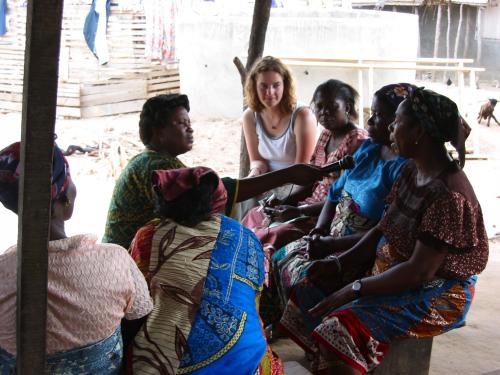Capacity Development

Overview
The Master of Science in Capacity Development and Extension is a unique program in Canada that develops the core competencies of students for facilitating social and environmental change.
Our program focuses on processes of learning, advocacy, leadership, communication and capacity development for rural/remote and small communities in Canada and around the world. Our “students without borders” engage with society through service learning projects during their course work, and through applied research and a range of professional development activities.
Our graduates are innovators in the public and not-for-profit sectors. Many pursue doctoral studies and achieve important careers in community development, policymaking and academia.
Principles of Our Teaching and Learning
CDE is a learner-centered community, grounded in practice-based theories. We value social justice through shared-decision making, open communication, respect for difference, and commitment to conflict management. We pursue creative and independent thought in our intellectual pursuits.
Degree Requirements
The Capacity Development and Extension curriculum focuses on:
- Historical, philosophical and sociological foundations of capacity building
- Extension theory and methods
- Adult learning and development
- Facilitation and conflict management
- Capacity building and sustainable development
- Decision making and conflict
- Qualitative and quantitative research methods
The program consists of a set of requirements:
- Foundations of Capacity Building and Extension
- Research Design
- Quantitative or Qualitative Techniques
Plus Restricted Electives:
- Community Engagement and Public Participation
- Capacity Building for Sustainable Development
- Facilitation and Conflict Management
- Readings in Capacity Building and Extension
- Communication for Social and Environmental Change
- Community Environmental Leadership
Plus Open Electives in other areas of research interest.
In addition to course work, students write a thesis or major research paper on a topic approved by his/her Advisory Committee. The THESIS option requires that students complete six courses (three core courses, plus two restricted electives, plus one open elective), in addition to the thesis. The MAJOR PAPER option requires that students complete eight courses (three core courses, plus four restricted electives, plus one open elective), in addition to the major research paper.